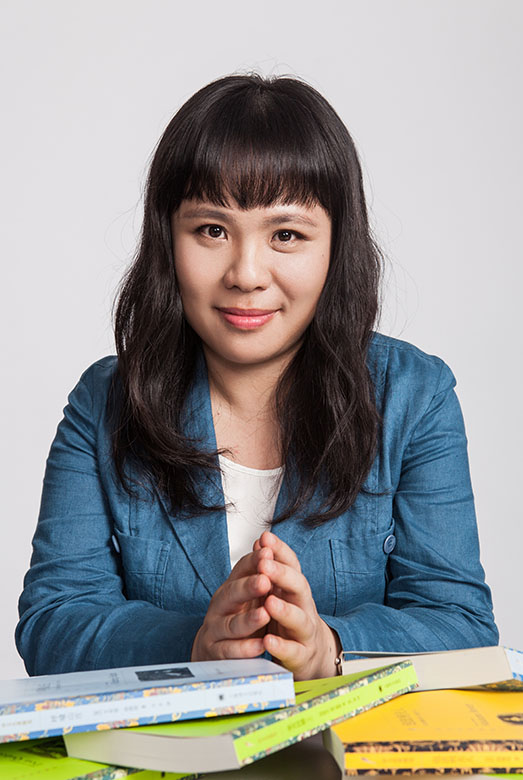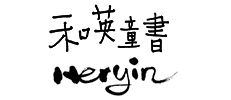Press

Interview with Huang Yuning
1. What have you been busy with lately?
This is the 40th anniversary of the founding of Shanghai Translation Publishing House, for which I have worked for 21 years. There’s a lot to do really, but I’m primarily working on producing some good reads. Haruki Murakami’s latest novel Killing Commendatore, Margaret Atwood's The Handmaid's Tale, which created literary and movie phenomena, the collected works of last year’s Nobel Prize winner, Kazuo Ishiguro, et cetera et cetera; these are enough to keep us busy for the whole year. There’s my partnership with DeDao app, of course, which is ongoing. Then there’s writing and refining manuscripts, as well as communicating with authors. These have all become part of my work routine. In addition, my first novella will be published soon, so I’ve also been busy finalizing that lately.
2. When did you begin to work with “DeDao - Listening to A Book”?
We started talking about working together in the middle of last year. The first book, Pride and Prejudice, went live on August 30. To date, 30 have gone live.
3. How do you define and select classic stories in foreign literature? Who is the target group, and are there many listeners?
A myriad of issues must be taken into consideration when it comes to selecting a book. For instance, does the book have sufficient literary standing? Is it well known among the circle of readers? As far as the “type of story” is concerned, does it have typical significance? Also, whether the story is interesting; whether the author’s nationality, era and type are sufficiently diverse; whether I have enough confidence as to my understanding of the novel; whether I could find a suitable partner to help me write and interpret part of the content of the work - all these are factors that need to be taken into consideration. This is a long-term project. Therefore, I would temporarily put aside some of the works that are very important, that I like very much but which conditions are as yet not ripe, but I hope I would ultimately be able to complete them one by one. DeDao app defines its target group as: life-long learners who love to learn and are self-motivated with a thirst for knowledge, and hope to fully utilize fragments of time to gain knowledge; regardless of whether these learners are located in large cities or small towns, entrepreneurs or civil servants or white collar workers, they are DeDao app users. To date, the number of listeners of the 30 books that have gone live total more than 2 million.
4. Which among the Listening to A Book Everyday currently being produced is the most difficult to present? Are you able to explain a book clearly in 25 minutes?
In fact, every book is difficult, with different difficulties. If difficulty were to be measured simply in terms of a novel’s volume and text, War and Peace and Moby Dick would be considered tough nuts to crack. The standard duration for interpreting each book is 25 to 30 minutes. Some, such as War and Peace, are extended versions, lasting about an hour or so. As for whether this book can be explained clearly during this period of time depends on the angle you take. First, to be sure, the effect of listening to a short audio program cannot be compared to reading each word and sentence - in fact, nothing can really replace actual reading. Second, let’s say metaphorically, the classic text is a big mansion. Our audio program offers you a few paths of entry, opens a few doors and windows for you, and gives you a map. The program helps you feel that the trip you take will not be in vain once you enter. What I try my best to do is to give a brief and clear account of these doors and windows, and to do my best to paint this picture accurately.
5. You are Director of the editing office of the largest professional translation publishing house in China. What is your daily routine like?
First, we clock in and out. We’re not as free and laid back as people normally imagine the “literati” to be. My work routine comprises the handling of a myriad of detailed affairs, from discussions on the selection of topics, copyright negotiations, first and second reviews of manuscripts to significant and minute matters related to printing and production as well as marketing. Shanghai Translation Publishing House is a professional high-end publishing house that is fairly market oriented. Our work is both cultural and commercial, and involves trying to strike a balance between the two every day. My writings and translations, including my partnership with DeDao app, are done in my spare time, hence my biggest conundrum is a serious lack of time.
6. What is traditional publishing’s biggest crisis?
There’s a chapter in The Hunchback of Notre Dame entitled “This Will Destroy That”, which does not seem to be directly related to the entire story line. In that chapter, Hugo spoke about printing and architecture simultaneously, bitterly lamenting that prior to the invention of the printing press, an important function of architecture was to record history, but this actually perished after printing became prevalent; only the functions of aesthetics and practicality remained. A few years ago, American author Philip Roth also commented bitterly that in 25 years, the novel as an art form would become a cult worshiped by a zealous few, and mind you, that’s the most optimistic prediction - “maybe more people than now read Latin poetry, but somewhere in that range”. We can consider these two passages together. Just like Hugo lamenting that the printing press would lead to the demise of architecture’s function as a recorder of history in The Hunchback of Notre Dame, Roth believed that “screens”, both big and small, would destroy the novel. These screens make acquiring information and stories so easy, so fragmented, so much so that in the future, “that kind of concentration and focus and attentiveness [devoted to reading would be] hard to come by – it's hard to find huge numbers of people, large numbers of people, significant numbers of people, who have those qualities.” If we were to say that traditional publishing is in crisis, then the replacement of media may well be superficial. What is more important is whether there is an intrinsic change in this behavior we call “reading”, and in humanity’s way of thinking; and if this change does occur, when this inflexion point would arrive. I don’t have the ability to make a forecast on this, but I’m thankful that I still have the ability to do deep reading and find pleasure in the process, and I’m thrilled to be working primarily in the traditional publishing industry.
Huang Yining will be speaking at the StoryDrive conference in Beijing (28 May - 1 June 2018).































